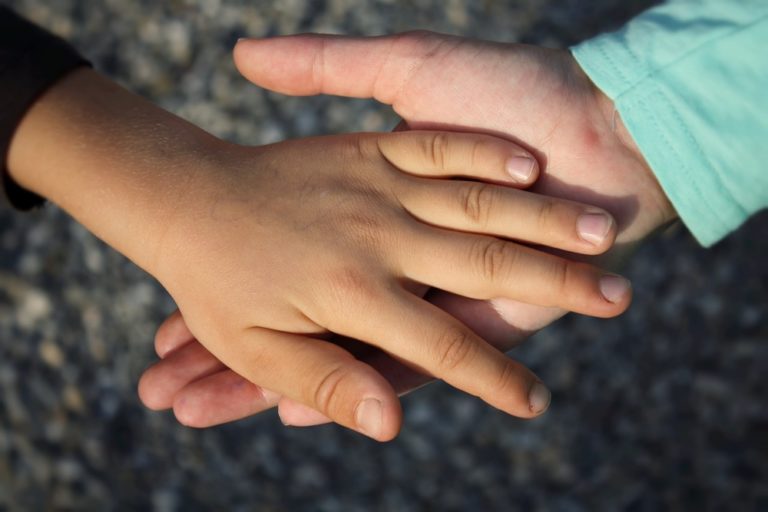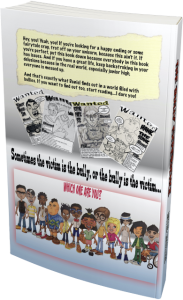Can Empathy Be Taught To Help Stop Bullying? Let’s Find Out!


By Antoine G Larosiliere
One of the questions I hear a lot when amongst teachers and parent groups is, “Can empathy be taught to help stop bullying?”
It seems the world has been looking for a “cure” to bullying now for quite some time, but for some reason this global issue has not gone away. For the past couple of years, the experts have been pushing new remedies, and many parents and educators asking, “can empathy be taught to help stop bullying?” Well, I have news for whomever is reading this article: there is no cure to bullying. So to answer the question, “Can empathy be taught to help stop bullying?” The answer is no. Empathy helps reduce bullying, but empathy alone is not enough. We have to also teach our children to be accountable, teach them what bullying is and their contributions to it, teach them to be responsible by destigmatizing “seeking help,” and teach them to be more resilient by empowering them with strategies that can reverse the imbalance of power.
“It’s not just a national problem, but a global problem. So, to put it frankly; bullying isn’t going anywhere.”
There is no cure for bullying
Bullying is abusive behavior, and abusive behaviors have been in existence for centuries. Bullying isn’t a student issue, or a school issue; it’s a human issue. It’s not just a national problem, but a global problem. So, to put it frankly; bullying isn’t going anywhere. It isn’t going anywhere because most adults are victims of abuse and neglect and have much healing to do themselves. These are the same adults who are raising the majority of our children. The unresolved issues parents are dealing with manifest in their children. As a parent, I’m no exception.

Little attention is given to healing
Many adults and parents are so consumed with their careers and their adult responsibilities that little attention is given to healing from our childhood traumas. My point is, if the parents and adults aren’t healing, how likely is it that the children will? In other words, children are bullying because they aren’t being taught to heal.
Empathy is not sympathy
According to Merriam-Webster, empathy is, “the act of understanding, being aware of, and being sensitive to, the feelings, thoughts, and experiences of another.” Empathy is a skill, not a trait. In other words, it’s not something you’re born with, it’s something we learn to do based on the conditions of our environment. Yes, we can be taught to be more empathetic. Let’s also not confuse empathy with “sympathy.” Sympathy is simply just feeling pity or, feeling sorry for what someone else is going though. Empathy focuses more on understanding what others are thinking and feeling. There are 3 children’s books I’ve read that help to define empathy and explain the importance of being empathetic; What Is Empathy by Amanda Morin and John Joseph, You, Me and Empathy by Janeen Sanders, and Stand In My Shoes by Bob Sornson.

Empathy alone is not enough
Unfortunately, to help reduce this global, human problem called bullying; we have to do more than teach empathy. Without question the world could use more empathy, but it’s simply not enough. We have to also teach our children to be “accountable,” by teaching them what bullying is and showing them the role we all play in the bullying dynamic. By having a better understanding of what bullying is and their contribution to it, they will be able to recognize opportunities to make better choices. We also need to teach our children to be responsible for one another by destigmatizing “seeking help,” and illustrating the damages and consequences of not doing so. We also need to teach our children how to be more “resilient.” They need to be taught how to empower themselves with strategies that can reverse the imbalance of power that exists in bullying situations.
How do you know if a child lacks empathy?
It’s important to observe and decide if a child lacks empathy. Some of us are more empathetic than others, but identifying the children who lack empathy should be the first thing we do.
- Poor at reading visual cues regarding emotion (happy, sad, angry, etc.)
- Difficulty “relating” to others
- Difficulty being supportive of others
- Difficulty understanding how others might “feel”.
- Usually insensitive to the needs of others
- Doesn’t listen to others when they’re talking
- Doesn’t compliment or give positive feedback to others
- Shows cruelty to animals
- Bullies others
- Unresponsive to consequences
- Frequent lying and/or stealing.
How can empathy help?
- It supports the acceptance of strong emotions.
- Helps children learn to identify their feelings.
- Encourages children to share their feelings.
- Helps children find common ground with one another.
- Helps children see how their behavior impacts others.
- Promotes children working together to achieve shared goals.
- Emboldens children to speak out and help others.
How can we teach empathy?
I’ve been a teacher for over 18 years and have also created an anti bullying curriculum at my school where empathy happens to be the 3rd unit. It was important to make empathy an integral part since many of the bullies I’ve interacted with lack it. Through some experimentation, and analysis I was able to narrow down teaching empathy to six clear steps.
- Get to know another person you believe is different from you: Most people don’t take the time to do this due to fear, discomfort or implicit biases. This lack of interaction leads us to making our own assumptions that are usually inaccurate or misguided.
- Look for things you have in common: By doing this, we begin to tear down the societal and cultural walls that divide us. It also starts to eradicate implicit biases that limit our relationships.
- Identify any prejudices you have about the person and educate yourself on how these prejudices have affected the group: By doing this you’ll have a better understanding of someone’s plight, tribulations and might even see similarities between your own struggles and aspirations.
- Try to imagine what they feel or what they’re thinking.
- Put yourself in their shoes: Try to imagine what you would feel like, or remember what you felt like in a similar situation.
- Make a kind or compassionate gesture: Sometimes, even without implementing steps 1-5, step 6 makes an impact on it’s own.
I hope this has been helpful! Many strategies including the one I just mentioned can also be found in the novel The Bully Experience: Daniel’s Story. Also subscribe to the YouTube channel for more insight to these topics.
The Bully Experience "Daniel's Story"

Sign up for our newsletter and Read the novel For Free!
Stay updated. Sign up for our newsletter, and get the first two chapters of The Bully Experience Daniel’s Story absolutely free.